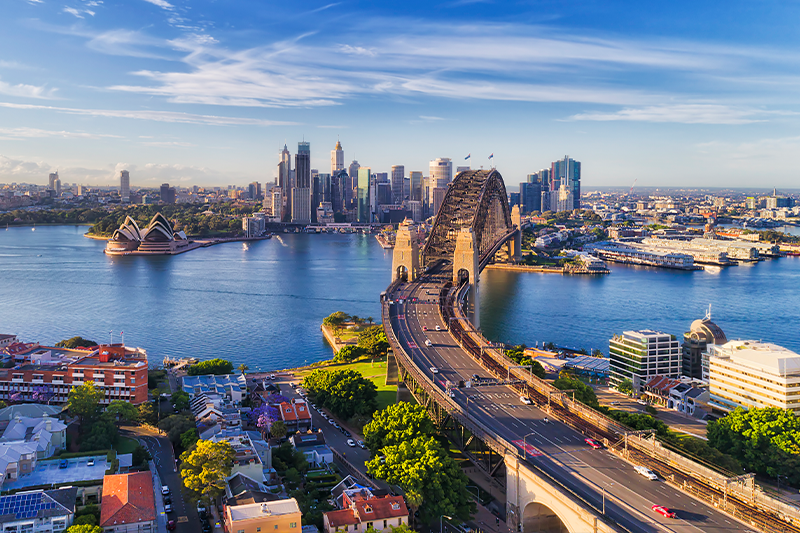
Local landing pages play a crucial role in driving targeted traffic and conversions for businesses in Australian cities. With a unique market and search landscape, optimising these landing pages requires a tailored approach. In this blog post, we will explore actionable tips and strategies to help businesses optimise their local landing pages specifically for Australian cities.
Understanding the Local Search Landscape in Australia
To begin, let’s delve into the significance of local search and its impact on businesses in Australia. According to recent studies, 46% of all Google searches have local intent, indicating a strong need for businesses to optimise for local visibility. Additionally, local searches lead to 18% of mobile conversions within 24 hours.
In the Australian market, Google Maps, local packs, and localized organic search results dominate the local search landscape. These elements provide opportunities for businesses to capture local search visibility and attract local customers.
Researching and Identifying Relevant Local Keywords
Conducting thorough keyword research is essential for optimising local landing pages. Australian cities have their own unique search patterns and terminology, requiring businesses to target location-specific keywords. Utilise keyword research tools such as Google Keyword Planner, Google Search Console, or SEMrush to identify high-volume local keywords and long-tail variations.
For instance, if you have a restaurant in Sydney, focus on keywords like “best restaurants in Sydney,” “Sydney dining guide,” or “top-rated cafes in Sydney.” By incorporating these location-specific keywords, businesses can attract highly relevant traffic.
Creating Compelling and Location-Specific Content
Crafting engaging content that resonates with local audiences is crucial. Local landing pages should provide valuable information while highlighting the unique aspects of each Australian city.
Consider incorporating local landmarks, upcoming events, and insights into your content. For example, a hotel in Melbourne can create a guide to popular attractions in the city or curate a list of upcoming cultural festivals. Such content not only attracts local customers but also positions the business as an authority within the community.
Optimising On-Page Elements for Local SEO
On-page optimisation plays a vital role in local landing page success. Optimising title tags, headings, URL structure, and image alt tags with location-specific keywords helps search engines understand the relevance of your landing page.
According to studies, 50% of local mobile searches result in a store visit within a day. To cater to the increasing mobile usage in Australia, ensure your landing pages are mobile-friendly and offer a seamless user experience across devices.
Leveraging Google My Business for Local Landing Pages
Google My Business (GMB) is a powerful tool for local SEO in Australia. Businesses with an optimised GMB profile are more likely to appear in the local pack and attract local customers.
Ensure your GMB profile is complete, accurate, and regularly updated with relevant information such as business hours, address, phone number, and website. Encourage customers to leave reviews, as 92% of consumers read online reviews, and positive reviews improve local search rankings.
Building Local Backlinks and Citations
To improve local search visibility, acquiring high-quality local backlinks and citations is essential. Partnering with local organisations, sponsoring events, or collaborating with local influencers can help businesses earn authoritative backlinks.
Additionally, consistency in NAP (Name, Address, Phone Number) information across local citations is crucial. Inaccurate or inconsistent information can negatively impact local SEO efforts.
Monitoring and Analysing Performance
Tracking and analysing the performance of local landing pages is vital to ensure ongoing success. Monitor metrics such as organic traffic, conversions, and local search rankings using tools like Google Analytics and Google Search Console.
By analysing these metrics, businesses can make data-driven optimisations and identify areas for improvement in their local SEO strategy.
Conclusion
Optimising local landing pages for Australian cities requires a tailored approach. By understanding the local search landscape, conducting thorough keyword research, creating location-specific content, optimising on-page elements, leveraging GMB, building local backlinks, and monitoring performance, businesses can improve their local search visibility and attract targeted traffic.
Remember, local SEO is an ongoing process. Stay updated with changes in local SEO best practices and continue refining your strategies to maintain a strong local presence in Australian cities. Implement the tips and strategies shared in this blog post, and watch your local search rankings soar.



